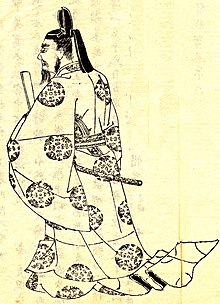1019
Appearance
| Millennium: | 2nd millennium |
|---|---|
| Centuries: | 10th century – 11th century – 12th century |
| Decades: | 980s 990s 1000s – 1010s – 1020s 1030s 1040s |
| Years: | 1016 1017 1018 – 1019 – 1020 1021 1022 |
| Gregorian calendar | 1019 MXIX |
| Ab urbe condita | 1772 |
| Armenian calendar | 468 ԹՎ ՆԿԸ |
| Assyrian calendar | 5769 |
| Balinese saka calendar | 940–941 |
| Bengali calendar | 426 |
| Berber calendar | 1969 |
| English Regnal year | N/A |
| Buddhist calendar | 1563 |
| Burmese calendar | 381 |
| Byzantine calendar | 6527–6528 |
| Chinese calendar | 戊午年 (Earth Horse) 3715 or 3655 — to — 己未年 (Earth Goat) 3716 or 3656 |
| Coptic calendar | 735–736 |
| Discordian calendar | 2185 |
| Ethiopian calendar | 1011–1012 |
| Hebrew calendar | 4779–4780 |
| Hindu calendars | |
| - Vikram Samvat | 1075–1076 |
| - Shaka Samvat | 940–941 |
| - Kali Yuga | 4119–4120 |
| Holocene calendar | 11019 |
| Igbo calendar | 19–20 |
| Iranian calendar | 397–398 |
| Islamic calendar | 409–410 |
| Japanese calendar | Kannin 3 (寛仁3年) |
| Javanese calendar | 921–922 |
| Julian calendar | 1019 MXIX |
| Korean calendar | 3352 |
| Minguo calendar | 893 before ROC 民前893年 |
| Nanakshahi calendar | −449 |
| Seleucid era | 1330/1331 AG |
| Thai solar calendar | 1561–1562 |
| Tibetan calendar | 阳土马年 (male Earth-Horse) 1145 or 764 or −8 — to — 阴土羊年 (female Earth-Goat) 1146 or 765 or −7 |
1019 (MXIX) was a common year starting on Thursday of the Julian calendar, the 1019th year of the Common Era (CE) and Anno Domini (AD) designations, the 19th year of the 2nd millennium, the 19th year of the 11th century, and the 10th and last year of the 1010s decade. As of the start of 1019, the Gregorian calendar was 6 days ahead of the Julian calendar, which was the dominant calendar of the time.

Events
[change | change source]- The Azdâjis ends the Kingdom of Nekor in Morocco.
- Sviatopolk I dies, and is succeeded by his brother Yaroslav I (the Wise). He becomes, with the support of the Novgorodians and the help of Varangian (Viking) mercenaries, the Grand Prince of Kiev. Yaroslav consolidates the Kievan state, through both cultural and administrative improvements, and military campaigns.[1]
References
[change | change source]- ↑ "Yaroslav I (prince of Kiev) - Britannica Online Encyclopedia". Britannica.com. Retrieved 2012-04-07.
